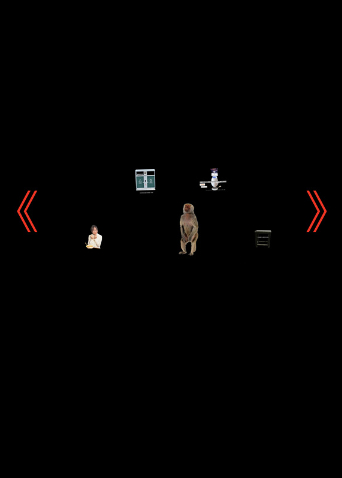一场噩梦醒来,动漫他恍然发现自己竟然躺在别人媳妇的床上,动漫更多谜团也随之浮现,百思不得解,哭笑不得中苦苦追查,而真相浮出的刹那间,他却彻底惊呆了……

一场噩梦醒来,动漫他恍然发现自己竟然躺在别人媳妇的床上,动漫更多谜团也随之浮现,百思不得解,哭笑不得中苦苦追查,而真相浮出的刹那间,他却彻底惊呆了……
回复 :杨明(黄秋生 饰)在黑道中浸淫多年,早已经爬到了大哥的地位,可是,多年的摸爬滚打让杨明感到疲惫不堪,他只希望能够卸下帮派之中的繁杂事务,过一种平静的生活。一次偶然中,杨明结识了名叫阿媚(蔡卓妍 饰)的茶餐厅老板娘,阿媚的温柔和善良让杨明印象颇深,随着时间的推移,杨明渐渐爱上了阿媚。然而,杨明并不知道的是,自己手下的小弟阿良(黄又南 饰)亦对阿媚有着特殊的感情,两个男人之间的关系因为阿媚的存在而变得暗流涌动。与此同时,比尔一直在打着杨明店铺的主意,看到杨明和阿媚交往甚密,他决定将进攻的目标放在阿媚的身上。杨明和阿媚都不知道,他们正在渐渐陷入一场阴谋之中。
回复 :高考时刘嘉匆匆往考场跑,不小心和刘佳相撞,两人发生争执;大学时二人巧合的成了同桌,邻桌的男同学看刘佳漂亮,要求和刘嘉换座位,想和美女刘佳坐一起,刘嘉和邻桌男同学发生冲突,从此调皮捣蛋的刘嘉想尽各种办法整治邻桌男孩,闹出很多笑话。刘嘉得知刘佳是被农村人养大的孤儿,为了自己的学费,还有为了给把她收养长大的恩人治病,假期打工吃尽苦头,帮助刘佳克服很多困难完成学业,二人建立深厚友谊。大学毕业后二人街道偶遇,二人逐渐产生爱情,由于贫富差异,爱情遭到刘嘉父母的万般阻挠,二人陷入深深的痛苦之中。最终刘嘉被父母安排了一场不幸的婚姻,在遗憾中离去。
回复 :Somewhere in the remote region, the war ends. In the midst of ruined cities and houses in the streets, in rural hamlets, everywhere where people still live, are children who have lost their homes and parents. Abandoned, hungry, and in rags, defenseless and humiliated, they wander through the world. Hunger drives them. Little streams of orphans merge into a river which rushes forward and submerges everything in its path. The children do not know any feeling; they know only the world of their enemies. They fight, steal, struggle for a mouthful of food, and violence is merely a means to get it. A gang led by Cahoun finds a refuge in an abandoned castle and encounters an old composer who has voluntarily retired into solitude from a world of hatred, treason, and crime. How can they find a common ground, how can they become mutual friends? The castle becomes their hiding place but possibly it will also be their first home which they may organize and must defend. But even for this, the price will be very high.To this simple story, the journalist, writer, poet, scriptwriter, movie director, and film theoretician Béla Balázs applied many years of experience. He and the director Géza Radványi created a work which opened a new postwar chapter in Hungarian film. Surprisingly, this film has not lost any of its impact over the years, especially on a profound philosophical level. That is to say, it is not merely a movie about war; it is not important in what location and in what period of time it takes place. It is a story outside of time about the joyless fate of children who pay dearly for the cruel war games of adults.At the time it was premiered, the movie was enthusiastically received by the critics. The main roles were taken by streetwise boys of a children's group who created their roles improvisationally in close contact with a few professional actors, and in the children's acting their own fresh experience of war's turmoil appears to be reflected. At the same time, their performance fits admirably into the mosaic of a very complex movie language. Balázs's influence revealed itself, above all, in the introductory sequences: an air raid on an amusement park, seen in a montage of dramatic situations evoking the last spasms of war, where, undoubtedly, we discern the influence of classical Soviet cinematography. Shooting, the boy's escape, the locomotive's wheels, the shadows of soldiers with submachine guns, the sound of a whistle—the images are linked together in abrupt sequences in which varying shots and expressive sharp sounds are emphasized. A perfectly planned screenplay avoided all elements of sentimentality, time-worn stereotypes of wronged children, romanticism and cheap simplification. The authors succeeded in bridging the perilous dramatic abyss of the metamorphosis of a children's community. Their telling of the story (the scene of pillaging, the assault on the castle, etc) independently introduced some neorealist elements which, at that time, were being propagated in Italy by De Sica, Rossellini, and other film artists. The rebukes of contemporary critics, who called attention to "formalism for its own sake" have been forgotten. The masterly art of cameraman Barnabás Hegyi gives vitality to the poetic images. His angle shots of the children, his composition of scenes in the castle interior, are a living document of the times, and underline the atmosphere and the characters of the protagonists. The success of the picture was also enhanced by the musical art of composer Dénes Buday who, in tense situations, inserted the theme of the Marseilaise into the movie's structure, as a motive of community unification, as an expression of friendship and the possibility of understanding.Valahol Europaban is the first significant postwar Hungarian film. It originated in a relaxed atmosphere, replete with joy and euphoria, and it includes these elements in order to demonstrate the strength of humanism, tolerance, and friendship. It represents a general condemnation of war anywhere in the world, in any form.

